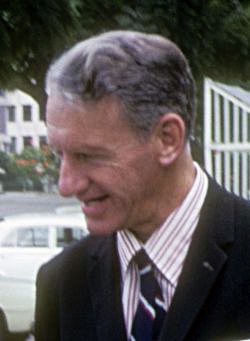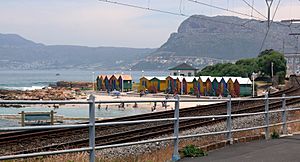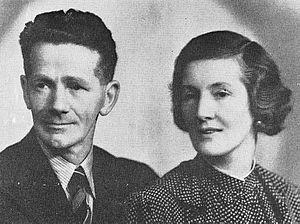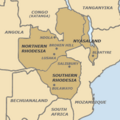Ian Smith facts for kids
Quick facts for kids
Ian Smith
GCLM ID
|
|||||||||||||||||||||||||||||||||||||||||||||||||||||||||||||||||||||||||||
|---|---|---|---|---|---|---|---|---|---|---|---|---|---|---|---|---|---|---|---|---|---|---|---|---|---|---|---|---|---|---|---|---|---|---|---|---|---|---|---|---|---|---|---|---|---|---|---|---|---|---|---|---|---|---|---|---|---|---|---|---|---|---|---|---|---|---|---|---|---|---|---|---|---|---|---|

Smith in 1975
|
|||||||||||||||||||||||||||||||||||||||||||||||||||||||||||||||||||||||||||
| 8th Prime Minister of Rhodesia | |||||||||||||||||||||||||||||||||||||||||||||||||||||||||||||||||||||||||||
| In office 13 April 1964 – 1 June 1979 |
|||||||||||||||||||||||||||||||||||||||||||||||||||||||||||||||||||||||||||
| Monarch |
|
||||||||||||||||||||||||||||||||||||||||||||||||||||||||||||||||||||||||||
| President |
|
||||||||||||||||||||||||||||||||||||||||||||||||||||||||||||||||||||||||||
| Deputy | Clifford Dupont John Wrathall David Smith |
||||||||||||||||||||||||||||||||||||||||||||||||||||||||||||||||||||||||||
| Preceded by | Winston Field | ||||||||||||||||||||||||||||||||||||||||||||||||||||||||||||||||||||||||||
| Succeeded by | Abel Muzorewa (as PM of Zimbabwe Rhodesia) | ||||||||||||||||||||||||||||||||||||||||||||||||||||||||||||||||||||||||||
|
|||||||||||||||||||||||||||||||||||||||||||||||||||||||||||||||||||||||||||
|
|||||||||||||||||||||||||||||||||||||||||||||||||||||||||||||||||||||||||||
| Personal details | |||||||||||||||||||||||||||||||||||||||||||||||||||||||||||||||||||||||||||
| Born |
Ian Douglas Smith
8 April 1919 Selukwe, Rhodesia |
||||||||||||||||||||||||||||||||||||||||||||||||||||||||||||||||||||||||||
| Died | 20 November 2007 (aged 88) Cape Town, South Africa |
||||||||||||||||||||||||||||||||||||||||||||||||||||||||||||||||||||||||||
| Resting place |
|
||||||||||||||||||||||||||||||||||||||||||||||||||||||||||||||||||||||||||
| Political party |
|
||||||||||||||||||||||||||||||||||||||||||||||||||||||||||||||||||||||||||
| Spouse |
Janet Duvenage Smith (née Watt)
(m. 1948; died 1994) |
||||||||||||||||||||||||||||||||||||||||||||||||||||||||||||||||||||||||||
| Children | 3, including Alec | ||||||||||||||||||||||||||||||||||||||||||||||||||||||||||||||||||||||||||
| Alma mater | Rhodes University (BComm) | ||||||||||||||||||||||||||||||||||||||||||||||||||||||||||||||||||||||||||
| Military service | |||||||||||||||||||||||||||||||||||||||||||||||||||||||||||||||||||||||||||
| Allegiance |
|
||||||||||||||||||||||||||||||||||||||||||||||||||||||||||||||||||||||||||
| Branch/service | Royal Air Force | ||||||||||||||||||||||||||||||||||||||||||||||||||||||||||||||||||||||||||
| Years of service | 1941–1945 | ||||||||||||||||||||||||||||||||||||||||||||||||||||||||||||||||||||||||||
| Rank | Flight Lieutenant | ||||||||||||||||||||||||||||||||||||||||||||||||||||||||||||||||||||||||||
| Battles/wars | Second World War | ||||||||||||||||||||||||||||||||||||||||||||||||||||||||||||||||||||||||||
Ian Douglas Smith (8 April 1919 – 20 November 2007) was a politician and farmer from Rhodesia. He was also a fighter pilot during World War II. He served as the Prime Minister of Rhodesia from 1964 to 1979. Rhodesia is now known as Zimbabwe.
He was the first leader of the country who was born there. In November 1965, his government, mostly made up of white people, declared independence from the United Kingdom. This happened after long disagreements about how the country should be run, especially about demands for black majority rule. He remained Prime Minister for nearly 14 years while Rhodesia was isolated by other countries. He also led Rhodesia's security forces during most of the Bush War.
Contents
Ian Smith's Early Life and Family
Ian Douglas Smith was born on April 8, 1919. His birthplace was Selukwe, a small town in Southern Rhodesia. This town was about 310 kilometers southwest of the capital, Salisbury. He had two older sisters, Phyllis and Joan.
Smith's Parents and Their Background
His father, John Douglas "Jock" Smith, was born in Northumberland, England. He grew up in Hamilton, Scotland. Jock moved to Rhodesia in 1898 when he was 19. He became a successful rancher, butcher, miner, and garage owner in Selukwe.
Jock met Agnes Hodgson in 1907. She had moved to Selukwe from England in 1906. They married in England in 1911 and returned to Rhodesia. Jock was a skilled horseman and won a major horse race in Salisbury in 1911.
Family's Role in the Community
The Smith family was very active in their local community. Jock was the head of the village board and led the Selukwe Company of the Southern Rhodesia Volunteers. He also helped start the local Freemasons' Lodge and was president of the town's football and rugby clubs.
Agnes, known as "Mrs Jock," started and ran the Selukwe Women's Institute. Both of Smith's parents received an award called the MBE for their service to the community. Smith said his parents taught him strong principles and a sense of right and wrong.
Smith's Schooling and Sports
Smith was good at sports from a young age. He went to Selukwe primary school. Then he attended Chaplin School in Gwelo, about 30 kilometers away. In his last year at Chaplin, he was the head student, called a prefect.
He was also captain of the school teams for cricket, rugby, and tennis. He won an award for being the best athlete and was an excellent rifle shooter. Smith later said he loved sports so much that he should have spent more time on his schoolwork.
Despite this, his grades were good enough to get into Rhodes University College in Grahamstown, South Africa. Many Rhodesian students went there because Rhodesia did not have its own university then. Smith started university in 1938, studying for a business degree. After a rugby injury, he started rowing and became a key member of the university's rowing team.
Ian Smith's Military Service in World War II
During the Second World War, Ian Smith became a Royal Air Force fighter pilot. He served from 1941 to 1945.
Injuries and Recovery
He was in a plane crash in Egypt that caused serious injuries to his face and body. These injuries were noticeable for the rest of his life. After recovering, he continued to serve in Europe.
Shot Down and Italian Partisans
Later, his plane was shot down. He then fought alongside Italian partisans, who were groups resisting the German occupation.
Smith's Political Career in Rhodesia
After the war, Smith started a farm in his hometown in 1948. In the same year, at 29 years old, he became a Member of Parliament for Selukwe. He was the youngest MP in the country's history.
Early Political Parties
He first joined the Liberal Party. In 1953, he switched to the United Federal Party. He became the Chief Whip for this party in 1958. In 1961, he left the party because he disagreed with the country's new constitution.
Forming the Rhodesian Front
The next year, he helped Winston Field create the Rhodesian Front. This party was made up only of white people and was very conservative. They wanted independence for Rhodesia without immediately giving power to the black majority.
Becoming Prime Minister
The Rhodesian Front won the election in December 1962. Smith became the Deputy Prime Minister. When Winston Field resigned in April 1964, Smith became Prime Minister.
Rhodesia's Unilateral Declaration of Independence (UDI)
The UK government refused to grant Rhodesia independence. They wanted Rhodesia to agree to a plan for black majority rule. Talks between Smith and UK Prime Minister Harold Wilson failed many times.
Because of this, Smith and his government declared independence on November 11, 1965. This was known as the Unilateral Declaration of Independence (UDI).
International Isolation and Bush War
After the UDI, the United Nations placed economic sanctions on Rhodesia. Smith's government survived with help from South Africa and, until 1974, Portugal. More talks with the UK in 1966, 1968, and 1971 did not lead to an agreement.
In 1970, Smith declared Rhodesia a republic. He led the Rhodesian Front to win three more elections over the next seven years. The Rhodesian Bush War began in earnest in 1972. Smith negotiated with different leaders, including Bishop Abel Muzorewa and guerrilla leaders Joshua Nkomo and Robert Mugabe.
Transition to Zimbabwe Rhodesia
In 1978, Smith and non-military nationalist leaders like Muzorewa signed the Internal Settlement. This agreement led to the country becoming Zimbabwe Rhodesia in 1979. However, Mugabe and Nkomo continued fighting, and no other country recognized this new government.
Smith was part of Muzorewa's group that reached an agreement with the UK and the guerrilla fighters at Lancaster House. After Zimbabwe gained recognized independence in 1980, Smith became the Leader of the Opposition. He held this role during Mugabe's first seven years as Prime Minister.
Smith often criticized Mugabe's government, even after he left politics in 1987. In his 1997 book, The Great Betrayal, he strongly criticized Mugabe and some UK politicians. As Zimbabwe's economy worsened under Mugabe, some people started to view Smith and his past actions differently. Supporters of the opposition in Zimbabwe saw Smith as a symbol of resistance.
Ian Smith's Final Years and Death

In 2005, Smith traveled to South Africa for medical treatment. He moved into a retirement home in St James, a suburb of Cape Town, overlooking the sea.
He was deeply saddened by the death of his son, Alec, in January 2006. Alec died from a heart attack at London Heathrow Airport. Even though Alec had disagreed with his father's policies when he was Prime Minister, they were very close. Smith had called his son "my rock."
Smith's stepdaughter, Jean, who had married singer-songwriter Clem Tholet, was also a widow by this time. She and Robert Smith cared for Ian Smith in his last years.
Ian Smith died in Cape Town on November 20, 2007, at the age of 88. He had suffered a stroke after being ill for several weeks. Jean was with him when he passed away. His ashes were brought back to Zimbabwe and scattered by his family at Gwenoro.
Ian Smith's Character and Legacy
After his death, writer Graham Boynton described Smith as a "simple man." He said Smith's serious and straightforward "Rhodesian-ness" made him a hero to his own people. But it also made him a figure of criticism to his opponents.
As the leader of the Rhodesian Front, Smith was the most important figure for Rhodesia's white community. Mordechai Tamarkin called him a "symbol and father figure" who "personified white Rhodesia" as Prime Minister.
Smith wanted to keep the white minority's power in Rhodesia. This led many black Africans and others to see him as a symbol of unfair white rule and racism.
During his time as a leader, Smith was known as a very strong negotiator. His colleague, P. K. van der Byl, said he had an "iron nerve." Smith was also known for being "icy calm" and rarely got angry or raised his voice.
Images for kids
-
Smith with Hendrik Verwoerd in 1964
-
Smith with UK Prime Minister Harold Wilson in 1965. Wilson, who took office in October 1964, proved a formidable opponent of Smith's.
-
Gibraltar, the venue for talks between Smith and Wilson in 1966 and 1968
-
HMS Fearless, the Royal Navy ship that hosted the 1968 Anglo-Rhodesian summit off Gibraltar
-
British Foreign Secretary Sir Alec Douglas-Home, with whom Smith signed a short-lived accord in 1971
-
Joshua Nkomo, the leader of ZAPU, one of the main black-nationalist parties in Rhodesia
-
Henry Kissinger, the U.S. Secretary of State, was instrumental in Smith's public acceptance in 1976 of the principle of majority rule.
-
Bishop Abel Muzorewa, the country's first black Prime Minister, who succeeded Smith in June 1979 following the Internal Settlement
-
Robert Mugabe, elected Prime Minister in 1980, faced an official opposition headed by Smith until 1987.
See also
 In Spanish: Ian Douglas Smith para niños
In Spanish: Ian Douglas Smith para niños
 | John T. Biggers |
 | Thomas Blackshear |
 | Mark Bradford |
 | Beverly Buchanan |



















